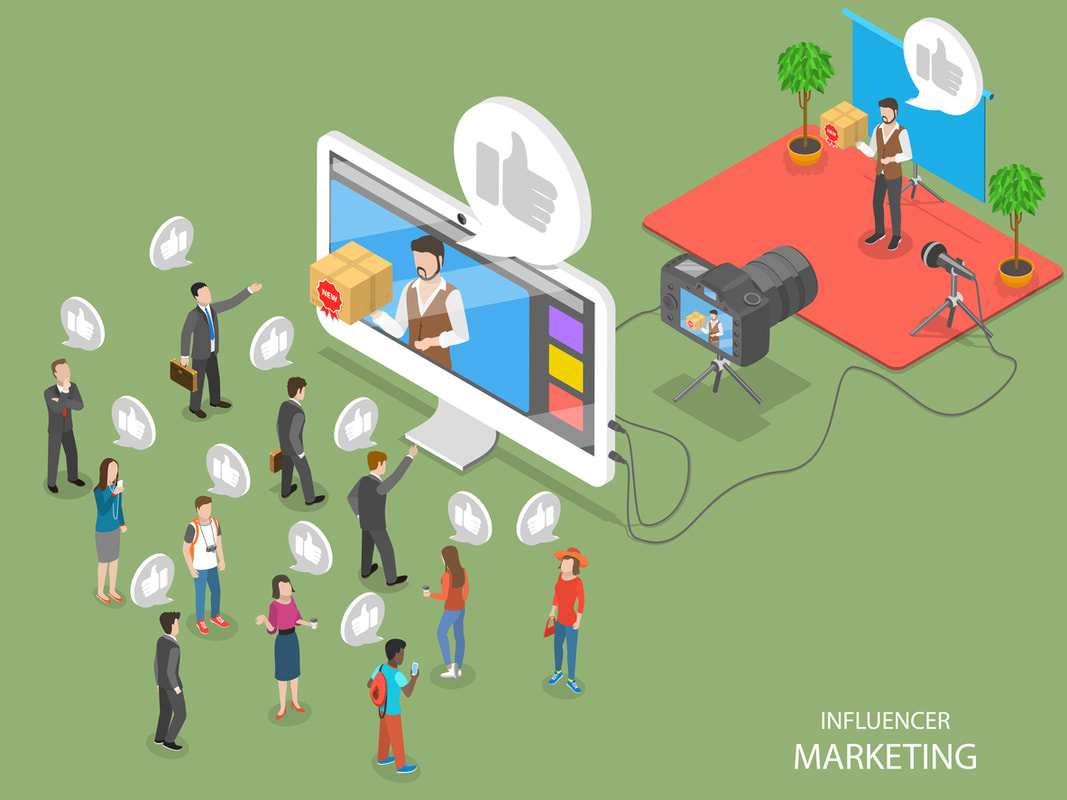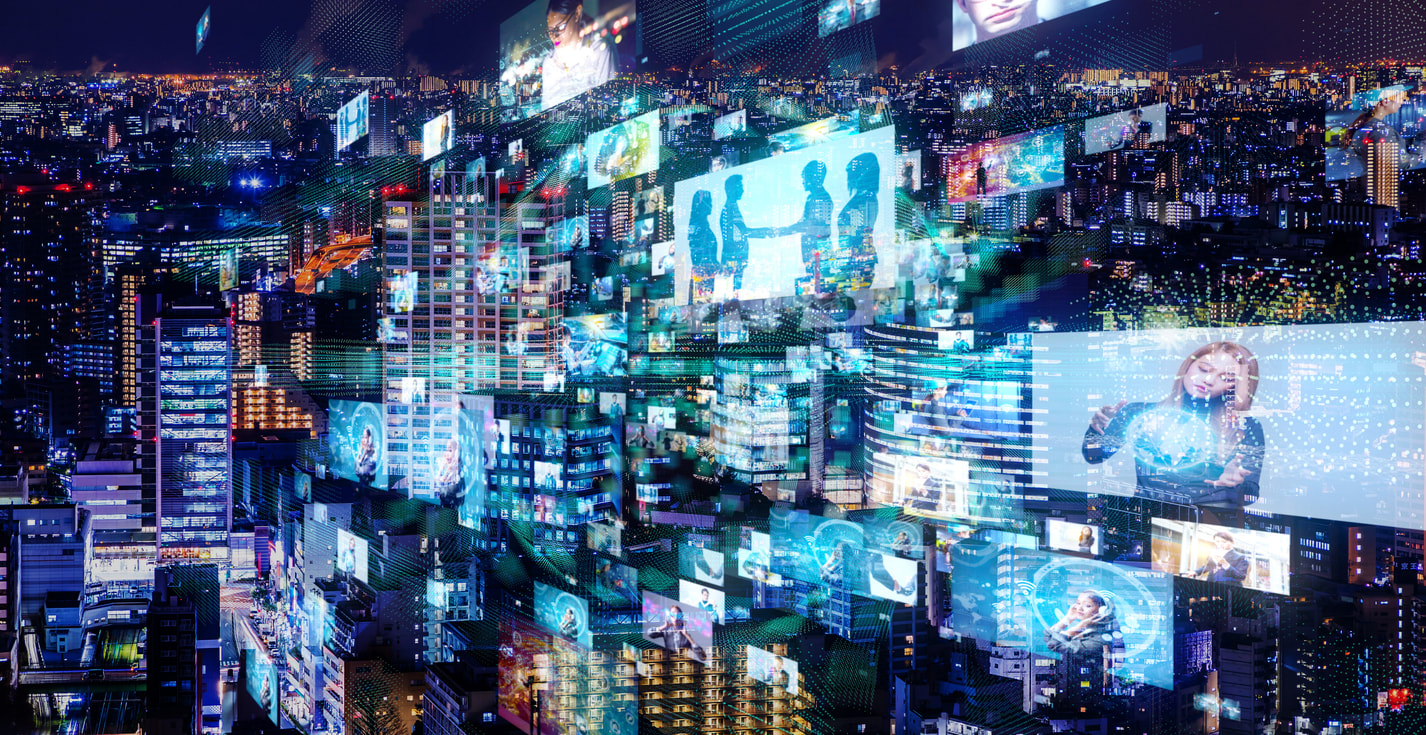https://www.designrush.com/trends/social-media-influencer-marketing
Influencers are publicly viewed as like-minded peers.
Research shows that 83 percent of people trust their peers, while only 62 percent trust a TV commercial.
With the latter, when brands are promoting products, they often seem like they're trying to force the demand and push products by creating a need on the market.
Businesses outline the reasons why you should have the product. Conversely, influencers show how those products fit into everyday life.
So, why exactly does influencer marketing work so well? In order to deliver this answer, we'll delve into the beginnings of influencer marketing.
When your friend tells you about a product or a service and shares their experience, that's called the word of mouth marketing. It's highly effective because it comes from a person that you know and therefore trust.
Influencer marketing stems from word of mouth marketing, and all of the same basic principles are applied. When you follow a person and admire their work, you have a feeling that you're getting to know them. So, when your favorite internet celebrities or bloggers recommend a product or service they really believe in, it's only natural that you would listen to them.
Influencers are notoriously known to support only products and brands they believe in, and they don’t accept each offer that comes their way.
According to Influence.co, 44 percent of influencers say that they receive four to five offers per month for branding their content and promoting products and that they usually accept less than a quarter of the received proposals.
Who Are Influencers?
Influencers, like the name implies, are people who are able to affect buyer’s decisions. They have their own niche following and crowd of people who actively engage with them.
Influencers are people who are semi-celebrities, but their work consists of two-way communication with their audience, so they are much more approachable, and thus, much more relatable.
Because they operate in closely woven communities and usually in smaller industries, choosing the right influencer can get you access to a highly targeted audience that is relevant to your business.
Influencers already have a following. Their audience is loyal. But most of all, influencers are your next-door neighbors, everyday people with interesting things to say. They are bloggers, vloggers, podcast artists and content creators who use online platforms and social media to engage with their audience on a daily basis.
The Difference Between Influencers & Celebrities
Is there a difference between traditional celebrities and influencers? Well, yes and no.
In theory, using celebrities in commercials is a form of influencer marketing, since all celebrities are influencers by default. They have a loyal fan base and their followers watch their every move. Celebrities are trendsetters and as such, they are considered to be influencers.
However, when we're talking about influencer marketing, using celebrities for product pushing requires a hefty sum, and the results may vary. For example, after signing Beyoncé for 50 million dollars, Pepsi saw a 7 percent decline in sales. However, if we take a look at Nike, they paid LeBron James $90 million in the course of seven years and racked $340 million worth of sales after signing him as the lead brand promoter.
So, what is the difference? Celebrities are paid to promote products to a wide audience with different interests, and that product or service may not resonate well with the public.
But influencers get you access to their fans who are grouped up around them, belonging to a specific niche. If you choose an influencer whose industry resonates with your brand values, he or she will easily use the pre-established authority to place your product or a service and recommend it. And that’s precisely because they aren’t celebrities.
We will back this up with a fact:
Non-celebrity bloggers are 10 times more likely to influence an in-store purchase than celebrities.
What's better? Sixty-four percent of consumers will stay loyal to a brand who shares the same values.
The Benefits Of Influencer Marketing
High Engagement RatesWhile celebrities may increase your brand awareness, influencers drive action and boost your sales. They outrightly say "buy this product," but they also say why it’s a good investment and they put their reputation behind it.
Products pushed by a peer who truly believes in it have a higher reach and boost conversions more than paid media campaigns. Influencers achieve 16 times higher engagement rate than paid media. Plus, a global trend shows that 92 percent of global consumers trust word of mouth marketing, whether it comes from a friend or a random online person befriended on social media.
Targeted Audience
As we mentioned above, influencers (especially those in specific niches) attract like-minded followers. That means that one such influencer can influence the buying decision and help cultivate the leads with a large group of highly-targeted people. There is less trial-and-error than in other marketing methods.
Return On InvestmentFor every dollar that’s invested in influencer marketing, companies are earning eight times more, and some even claim they’ve reached an ROI of up to $20 for every $1 spent!
When compared to traditional forms of marketing, influencer marketing generates 11 times more return on investment.
Effectiveness
Linquia has posted influencer marketing survey results, and the marketers and chief marketing officers have spoken – 94 percent of them believe that influencer marketing campaigns have been effective in improving their brand’s marketing strategy and results, and 67 percent of them claim they will double their influencer marketing budgets in the future.
GrowthInfluencer marketing is one of the fastest growing online customer-acquisition models out there -- even better than email marketing or organic search.
It's estimated that in 2018, influencer marketing will worth $1.7 billion. Compared to 2017, that’s an increase of half a billion dollars in just one year. In 2016, influencer marketing was valued at $700 million, so the growth trends are evident.
How Much Does Influencer Marketing Cost?We could say, Don't ask how much it costs but how much it can bring you. However, marketing a business comes with strict budgets that must be adhered to, and to be frank, influencer marketing isn't the cheapest form of marketing -- especially depending on the influencer that you choose to use. The good news? It still doesn't have to be expensive.
A survey shows that 97 percent of micro-influencers charge less than $500 per branded Instagram post, and 84 percent of them charge less than $250.
However, individuals with large followings and high-quality content certainly charge more than that. Ultimately, influencers determine their price based on how large an outreach they have and who their audience is. Most influencers are extra careful with loaning their reputation to a product, service or business because they have worked so hard to build their own brand around it.
Micro-influencers are more open to receiving just the products they are about to review, without the financial incentives. Provided that they get to keep the product in the end, of course. But brands should bear in mind that, if influencers are paid, they will push the product with more fervor.
People are flocking from traditional media to social channels. Generation Z pays more attention to YouTube influencers and content creators than watching TV. More and more people are installing Ad Blockers. The overall viewing experience has changed altogether, and everyone expects personalized designs, branded content, or instant gratification through streaming apps like Netflix and HBO Go.
More than 70 percent of teenage YouTube channel subscribers claim that they relate more to influencers and content creators than traditional celebrities, and 60 percent of overall YouTube audience’s buying decisions are influenced by YouTube influencers.
It should also be taken into account that content creators and influencers receive three times the view count, two times the engagement and 12 times more comments than celebrities.
81 percent of people are influenced by influencer’s product reviews.
Also, compared to Twitter, Instagram has much larger engagement rates. Micro-influencer analysis has shown that, on both Twitter and Instagram, accounts with 1000 followers have five times better engagement rate than accounts with 100,000 followers.
Speaking of Instagram, the influencers and micro-influencers are most active on this platform -- 59 percent of them to be exact. Facebook comes in second. There are studies that show that micro-influencers get higher engagement rates on social media channels than top influencers.
Markerly also found a correlation between the low engagement rates and audience size, which is good news for marketers. They can spend the same budget on different micro-influencers, reach new audiences and build the engagement instead of investing in a single top-tier influencer post.
Influencers are beginning to grasp the power of user-generated content and they are leveraging one of the largest advantages of their influencer status – the two-way communication. Influencers are actively staying in touch with their fan base by responding to comments and questions online.
Even more common are specially hosted Q&A and Ask Me Anything sessions, which are great for brands because people can then post questions about the product and get an immediate answer from their favorite content creator.
The Difference Between Social Media Marketing And Influencer MarketingWhen managing social media for a brand, you have to work hard to build an audience. The main purpose of social media marketing is promoting your brand on your own channels, through various types of content like pictures, copy, blog links, video content and whatever you can create to drive the engagement.
Also, social media, in general, can help you with customer service management and enable you to listen to your followers. You have a total control over your channels through social media marketing -- thus why it's called on-channel.
Since influencers work on their own channels promoting your products, it’s called the off-channel marketing. Influencers already come with their own fans. It’s much easier, less time consuming and cheaper to employ influencers and integrate them into your own marketing campaigns than to build such an engaged audience yourself.
Influencer Marketing – What The Skeptics Have To SayAs with all types of marketing – not every initiative will be successful. While we do invest a lot of time and data into finding out if our marketing strategies will bear fruit or not – marketing isn’t a perfect science.
Yes, you can take many steps to ensure you’re doing the right thing, but in marketing like in gambling, there is no such thing as a “sure thing”.
But if you have a good product and a good marketing campaign you have a better chance of succeeding in your business ventures. You might be skeptical about influencer marketing, but we’re going to debunk some of these myths.
There have been some reports that influencer marketing is ingenuine and ineffective. And research done by Tompson shows that about 18 percent of brands failed to get any return on their marketing strategy — but the problem here is that they weren’t specific about what strategies they followed. So it leaves the question unresolved and leaves us questioning the methods Tompson used in their 2015 survey.
One study, debunked.
Even marketing guru Neil Patel questions how long influencer marketing can be a valid tool in the future given the research from Tompson and the FTC (Federal Trade Commission) introducing regulations to improve disclosure of influencers being paid by companies in 2017. But this, we feel, is a bad interpretation of outdated information which we need to address to put your mind at ease.
Get Your Information Straight
How do you know what you can or can’t trust? Well, you need to look at the data closely. How many people were involved, what data are they showing, what data are they keeping hidden, when was the testing done, when was it published and so on… These are but a few of the questions you need to ask before trusting data of any sort. We discount the Tompson research from 2015 as the marketing world has shifted from then.
Another poll just a year later, by a larger sample of people, said that 48 percent of their marketers would increase their budget for influencer-based marketing.
From the same year, we have research done with 14,000 respondents which show a lot of interesting info proving that influencer marketing is effective.
70 percent of millennial consumers from that report say their shopping choices are influenced by the recommendation of their peers.
A more recent survey shows us that out of those marketers who used social media influencer marketing, 92 percent found it to be a useful tool.




 RSS Feed
RSS Feed